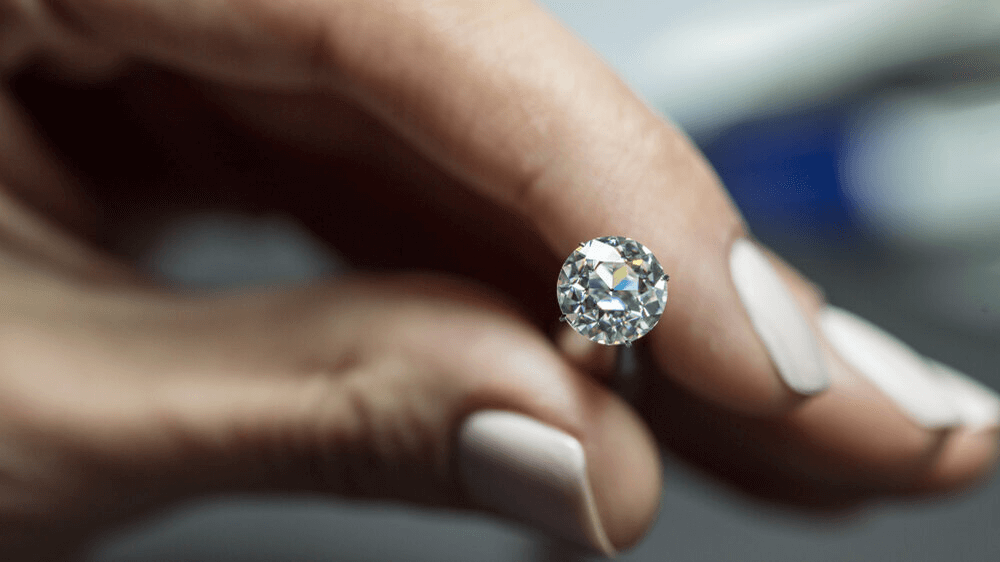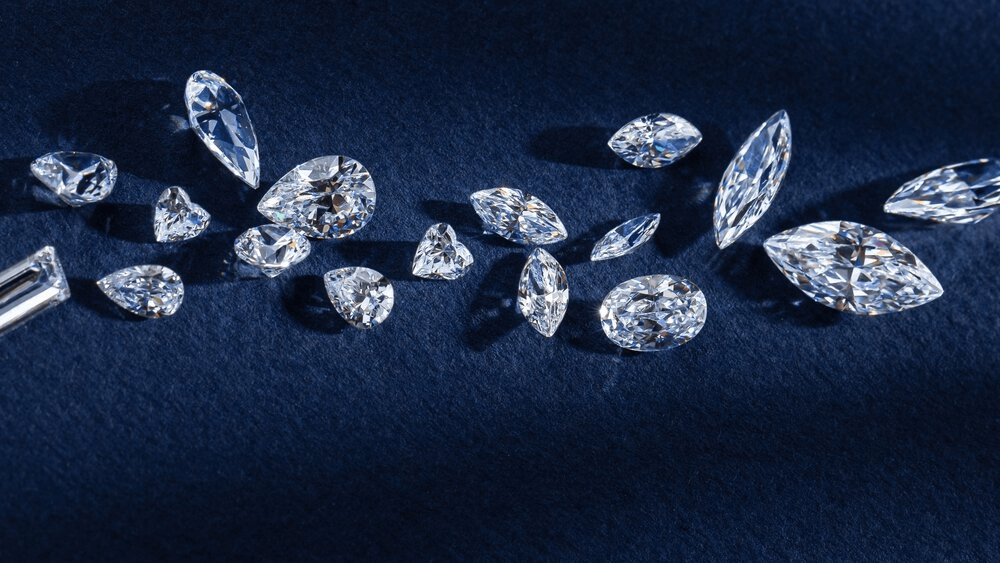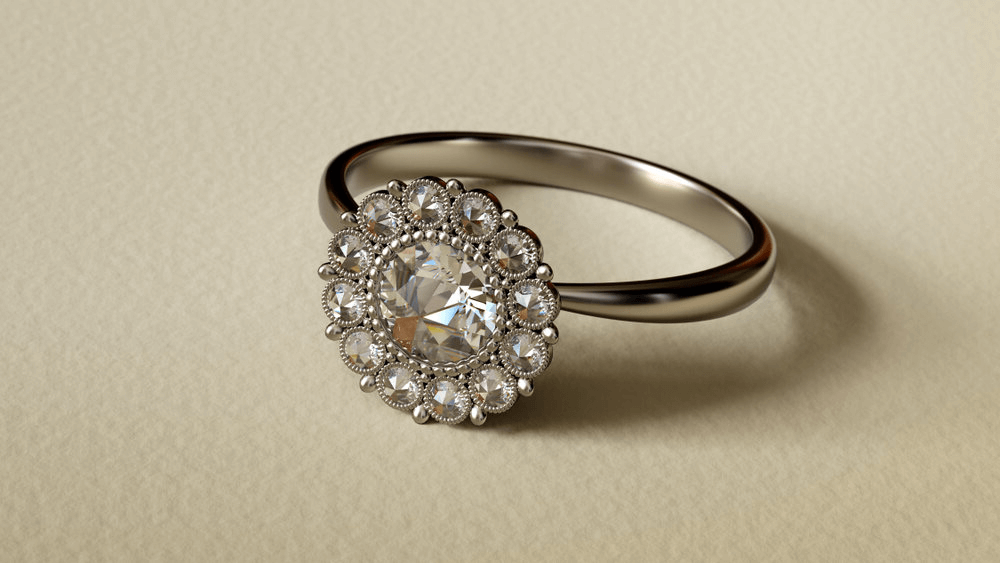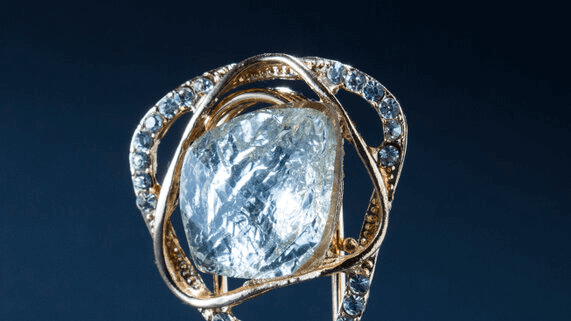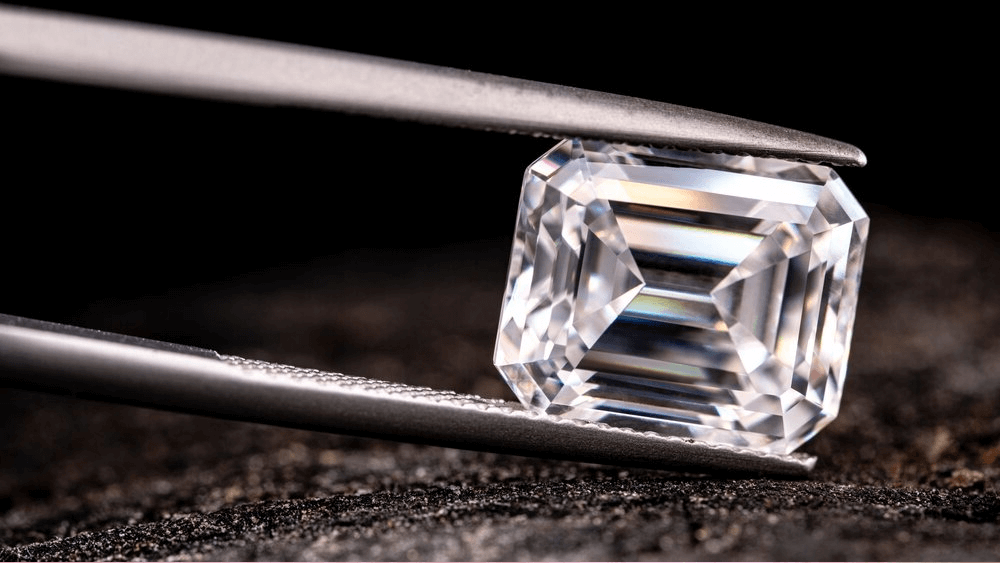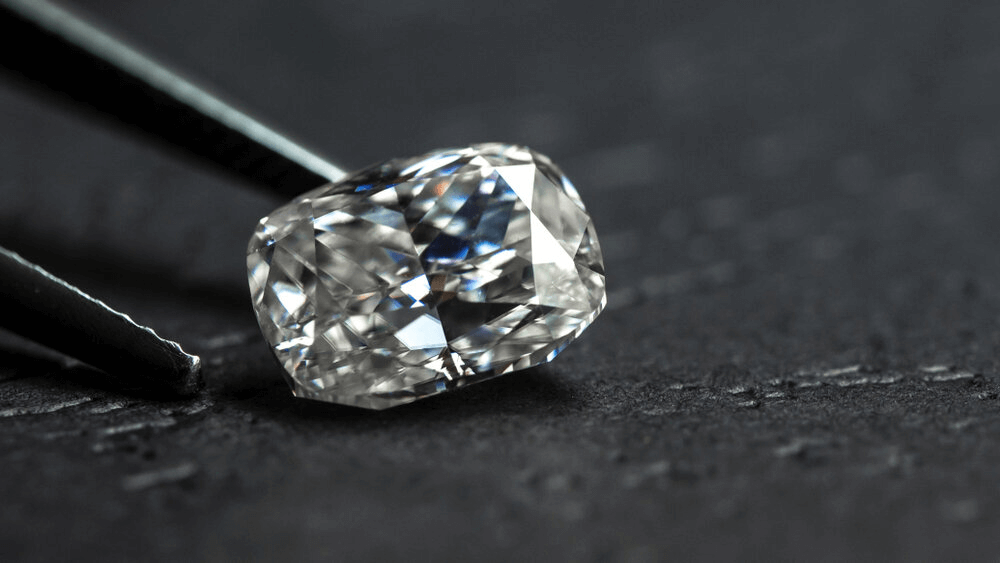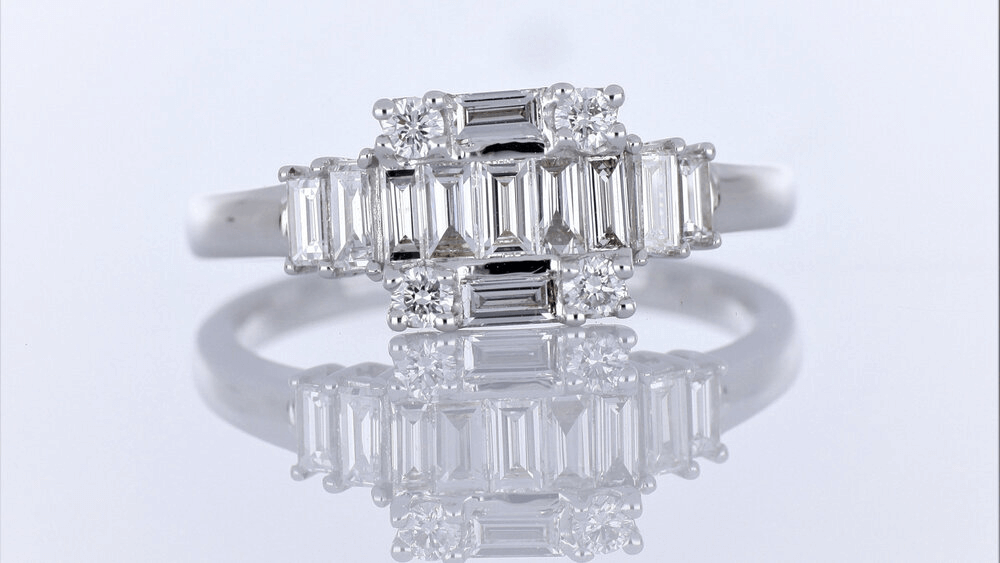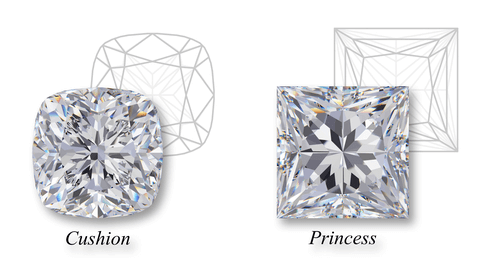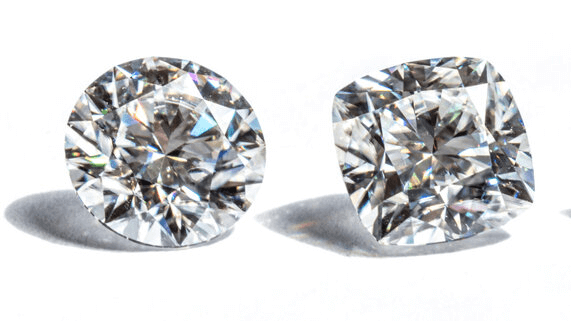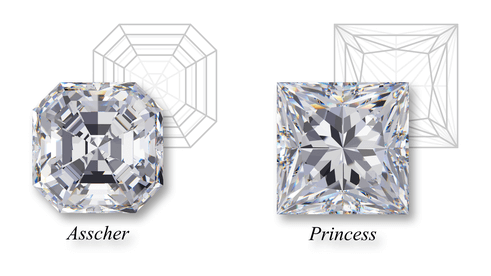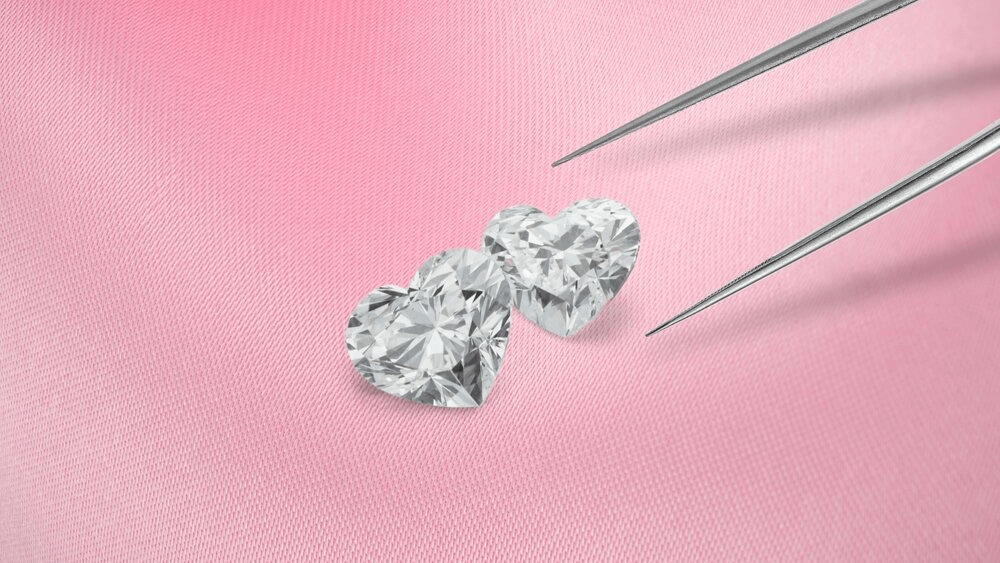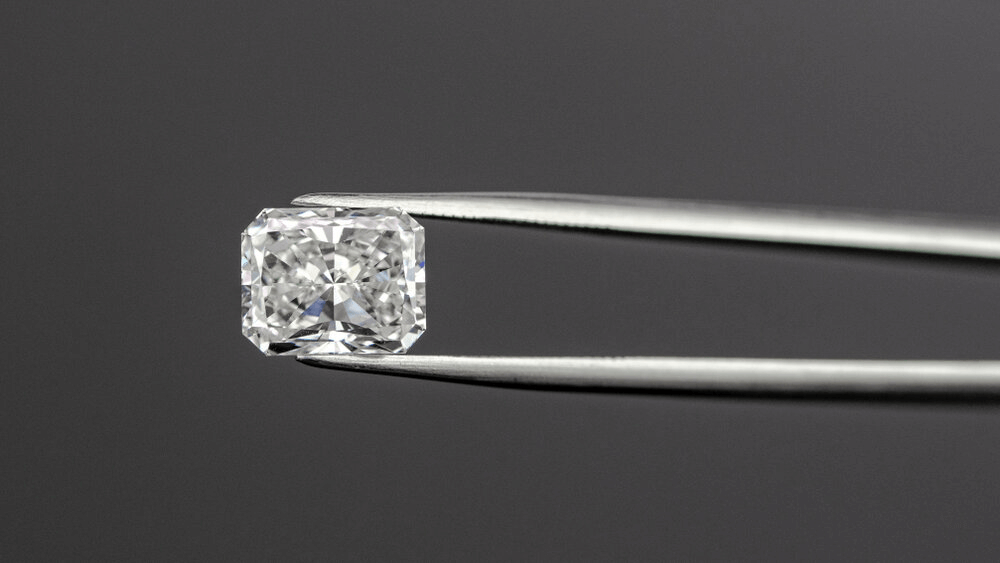Don’t Buy a Marquise Diamond Without Reading This

By Gary A.

Edited by Olivia H.
Published Apr 18, 2021
Edited on Mar 31, 2025

Navigate This Guide:
- 7 Quick Tips for Buying a Marquise Cut Diamond Engagement Ring
- Introduction
- Marquise Diamonds: The Basics
- Historical Background and Noble Origins
- Marquise Diamond Engagement Rings: Key Considerations
- Avoiding Bow Ties in Marquise Diamonds
- Marquise Diamond Cost Considerations
- Choosing a Marquise Cut Diamond
- Our Expert Take
- 10 FAQs
Before we dive deeper into the specifics, here are some practical tips to help guide your decision-making process:
7 Quick Tips for Buying a Marquise Cut Diamond Engagement Ring
- Tip 1: Evaluate the Length-to-Width Ratio: The ideal length-to-width ratio for a marquise cut diamond typically ranges between 1.75 and 2.15. This ratio affects the diamond’s overall appearance. A higher ratio results in a longer and slimmer diamond, while a lower ratio yields a shorter, wider shape. Personal preference plays a big role here, but it’s important to choose a diamond that looks balanced and aesthetically pleasing to you.
- Tip 2: Inspect for Symmetry: Symmetry is crucial in marquise diamonds. Both ends of the diamond should align perfectly, and the sides should be mirror images of each other. Any asymmetry can significantly impact the diamond’s appearance and light performance. When viewing the diamond, imagine drawing a vertical line down the center; both halves should be identical.
- Tip 3: Beware of the Bow-Tie Effect: Marquise diamonds are known for the ‘bow-tie effect’ – a dark area across the center that resembles a bow tie. This effect varies from barely noticeable to very prominent. A pronounced bow-tie can detract from the beauty and brilliance of the diamond. When examining the diamond, check if the bow-tie is distracting or acceptable to your taste.
- Tip 4: Consider the Setting Carefully: The sharp points of a marquise diamond are prone to chipping. Ensure that the setting protects these points, typically with V-shaped prongs. The right setting not only secures the diamond but also complements its shape. Popular choices include solitaire, halo, and three-stone settings. An East-West setting, where the diamond is placed horizontally, is an increasingly popular and contemporary choice.
- Tip 5: Pay Attention to Color and Clarity: Marquise diamonds can sometimes show color more easily than other cuts. Opt for a higher color grade if the diamond is set in white gold or platinum. In terms of clarity, marquise diamonds can hide inclusions well, especially near the pointed ends. Look for a diamond that is eye-clean, where no inclusions are visible to the naked eye.
- Tip 6: Don’t Overlook the Carat Weight: Due to their elongated shape, marquise diamonds often appear larger than other shapes of the same carat weight. Decide on the size based on personal preference and budget, but remember that larger marquise diamonds can emphasize imperfections and color.
- Tip 7: Understand the Impact on Finger Appearance: One of the marquise cut’s advantages is its ability to make the finger appear longer and slimmer. When trying on rings, consider how the diamond’s shape complements your hand. The goal is to choose a ring that not only looks stunning but also flatters your hand’s shape and size.
Now that you’ve got these practical tips, use Jeweler AI below to find the perfect engagement ring that suits your style and budget:
Introduction
Every diamond shape boasts a rich backstory. Whether you’re thinking of the mathematically engineered Round Brilliant, or the royal Asscher, the level of skill and ingenuity it takes to break new ground and create a never-before-seen shape will always entail a fascinating history.
However, the Marquise is one shape that inarguably stands head and shoulders above the rest in terms of its narrative – and, specifically, how it came to be.
But the Marquise’s story is not all it has going in its favor. An incredibly beautiful and elegant cut, it remains one of the less popular choices for engagement rings – making it a perfect choice for anyone whose style tends to go against the grain, while still remaining chic and refined…
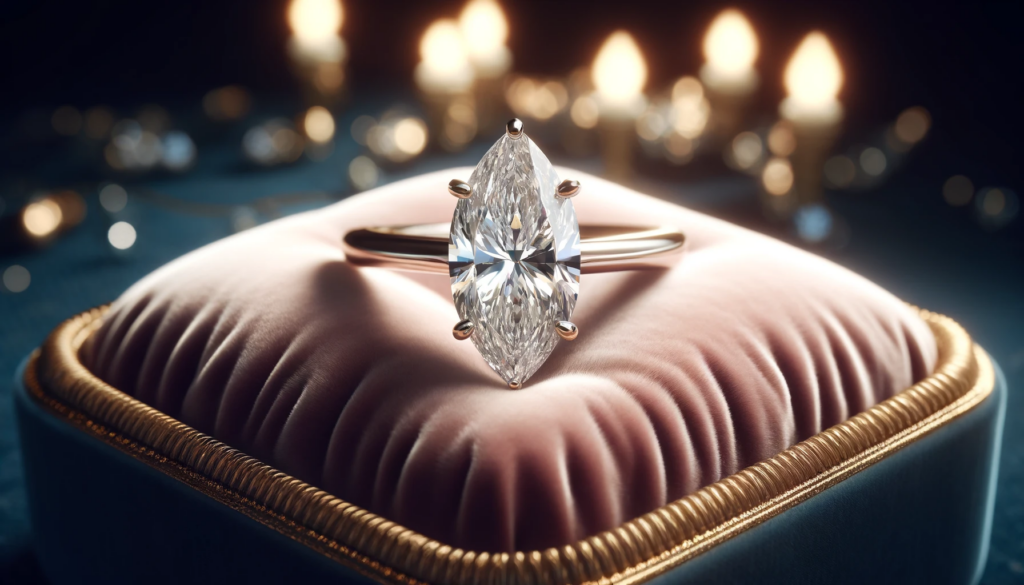
Marquise Diamonds: The Basics
Longer and thinner than the Round Brilliant, the Marquise cut was intended to resemble a closed mouth.
The Marquise shape is a unique, modified brilliant diamond cut that combines the length of the Marquise shape and the point of a pear shape on both edges. A marquise cut generally has 58 facets and an elliptical shape with pointed ends, leading to its nicknames as the football shape, boat shape, or eye-shaped diamond.
It also boasts the largest crown surface of any cut, thanks to its long and narrow size. Due to its unconventional shape, the marquise shape isn’t the most popular diamond-shaped engagement ring.
This cut is typically worn vertically, although it can be mounted in an East-West configuration. It is favored for its length, which enables it to appear larger than many other diamond shapes, even when they share the same carat weight.
As a result of its status as a modified brilliant, the Marquise boasts a high degree of brilliance and fire and, thanks to its unique shape, a mesmerizing light performance that looks incredibly striking on its own, or surrounded in a halo of accent stones, like this striking Marquise Halo Engagement Ring in Platinum.
Historical Background and Noble Origins
The Marquise shape dates back to the 18th century when King Louis XV of France commissioned a jeweler to design a cut that resembled the lips of his mistress, Jean Antoinette Poisson, the Marchioness Madame de Pompadour. The “marquise” is a hereditary namesake between a duke and a count, and those with the title often times wore a marquise-shaped diamond. Marquise diamonds are known as “navette” diamonds, which means “little ship” in French. The marquise cut is also widely used with other stones such as rubies, emeralds, and sapphires.
Celebrities with Marquise-shaped diamond engagement rings, Victoria Beckham, and Catherine Zeta-Jones, definitely stand out from the crowd with their stunning cut.
What Does Marquise Diamond Mean?
A ‘Marquise’ is a noble rank, used to refer to the wives of Marquis.
Here, the scandalous beginnings of the Marquise diamond cut are alluded to. Jean Antoinette Poisson was herself a Marquise, but the romance between her and King Louis XV is what made the history books – and many diamonds in the centuries that followed.
Is a Marquise a Vintage Cut?
Yes, it’s considerably older than some of the diamond cuts that are popular today.
Yes, the reign of King Louis XV lasted between 1715 and 1774, which narrows down the timeframe for the cut’s creation. That said, it doesn’t have to be reserved solely for vintage engagement rings anymore, and a good jeweler will have the right eye for creating something much more modern…
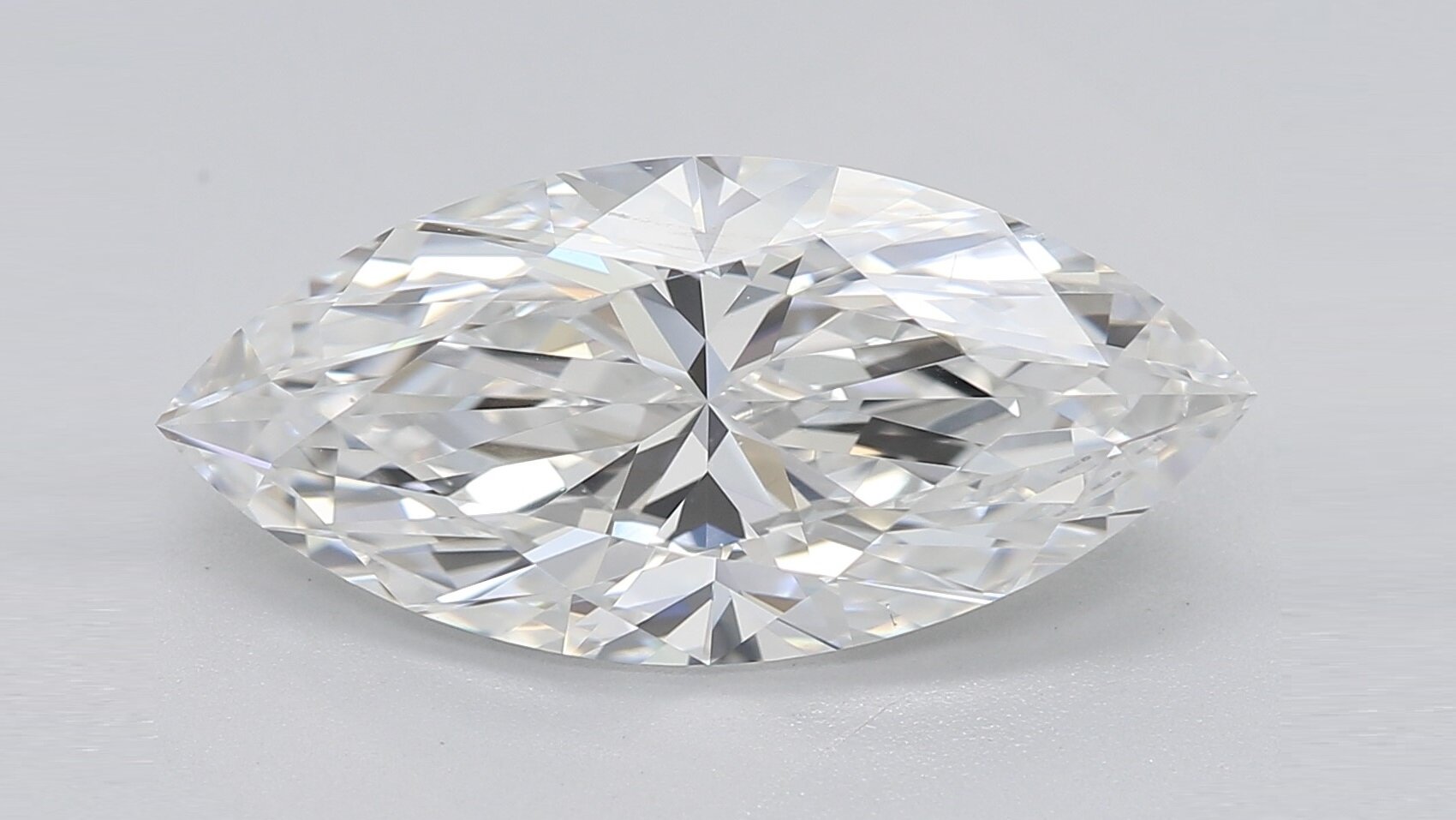
Marquise Diamond Engagement Rings: Key Considerations
The Marquise is striking and dramatic enough on its own, but, as one of the less conventional choices for popping the question, it’s good to get to know the specifics of creating a Marquise diamond engagement ring before you jump to any conclusions.
The Popularity of Marquise Diamonds
Marquise diamonds are not consistently popular, although they never go out of style.
Marquise diamonds have been around since the 18th century. For hundreds of years, they have offered a classic and highly refined choice to those looking for something slightly more unusual. These days, they also offer an edgier alternative to the more traditional styles, breathing new life into what was once considered a pretty antiquated shape.
The sleek, minimalistic lines of this Platinum Marquise Cathedral Engagement Ring, for instance, are incredibly modern and dramatic – the ideal choice for a bride who likes to combine classic silhouettes with a more modern vibe.
Alternatively, this Twisted Rose Gold Marquise Engagement Ring lives up to the romantic history of the cut, lending a rosy blush to the diamond and a more vintage feel to the ring.
Marquise Diamonds and Light Performance (Sparkle)
As one of the modified brilliant cuts, Marquise diamonds create a great amount of sparkle.
Obviously, none of the modified brilliants will sparkle quite as much as the Round Brilliant – but the Marquise is more than capable of creating a stunning light performance, with a great deal of fire, brilliance, and scintillation.
Of course, finding a sparkly Marquise certainly depends on its Cut quality. Symmetry, polish, and proportions all matter significantly to the overall beauty and brilliance of the diamond, and, below, we’ve provided charts to help you stick within those ‘ideal’ cut proportions.
But, given the diamond you choose is of good quality, the short answer is yes – Marquise diamonds have a great amount of sparkle.
So, fortunately for those considering the Marquise, it’s possible to take advantage of a much lower price for a higher quality diamond.
The Advantages to Choosing a Marquise Cut Diamond
Not only does the Marquise diamond possess a highly compelling backstory, but its shape is bold and rare enough that it’ll always stand out.
It’s pretty uncommon to run into someone wearing an engagement ring that features a dramatic Marquise diamond at its center. Even a ring that features this distinctive shape as an accent stone possesses its fair share of drama and flair.
In a way, this is similar to the Heart shape, which doesn’t tend to ‘fill many seats’ when it comes to engagement rings. What sets it apart from the Heart cut, however, is the fact that its shape is far more versatile.
With the right ring setting, you could make the Marquise look as romantic and timeless as a Round or Oval cut. But, on the other hand, you could also design your ring setting specifically to show off an edgier and more contemporary side to the cut. Yes, it’s much older than the 80s favorite, the Princess cut, and much more recognizable from its silhouette than, say, the Cushion or Radiant, but it’s also open to interpretation.
In essence, the Marquise offers the best of many worlds. It can be vintage, modern, romantic, bold, take center stage or create the perfect accent to another diamond. Beyond the history and the first impression, it has a lot going in its favor.
What the Marquise Says About its Wearer
Those who choose a Marquise ring are likely to be a little different and edgy, but still pretty traditional at heart.
There’s no denying the vintage roots of this shape, but, in the right design, even the Marquise can be transformed into something totally original and creative.
The Durability of the Marquise Diamond
Given diamond’s reputation for strength and resilience, its fragility and vulnerability to breaking is not the first thing that comes to mind. Still, it is important to take into account the fact that the Marquise two sharp points are far more susceptible to chipping or breaking than, say, the smooth and rounded corners of the Cushion, for instance.
The case is the same for the four corners of the Princess cut – they represent a weak spot since the diamond is polished to a very precise point – as well as the characteristic point of the Heart.
This point can also snag on clothing, which is also something to keep in mind.
However, the setting of the ring could save you. It’s possible to protect the vulnerable points of the Marquise using two extra prongs – which, themselves, have to be placed very cautiously – at the points of the shape. Contrary to what you might think, this barely encroaches on the diamond’s beauty – and, with the right amount of skill, can complement it very nicely.
Nevertheless, if your partner leads a particularly active lifestyle, the Marquise may not be the best idea. It’s perfectly possible to keep one of these diamonds looking beautiful for many, many decades, but that’s not to say that it’s totally impervious to damage.
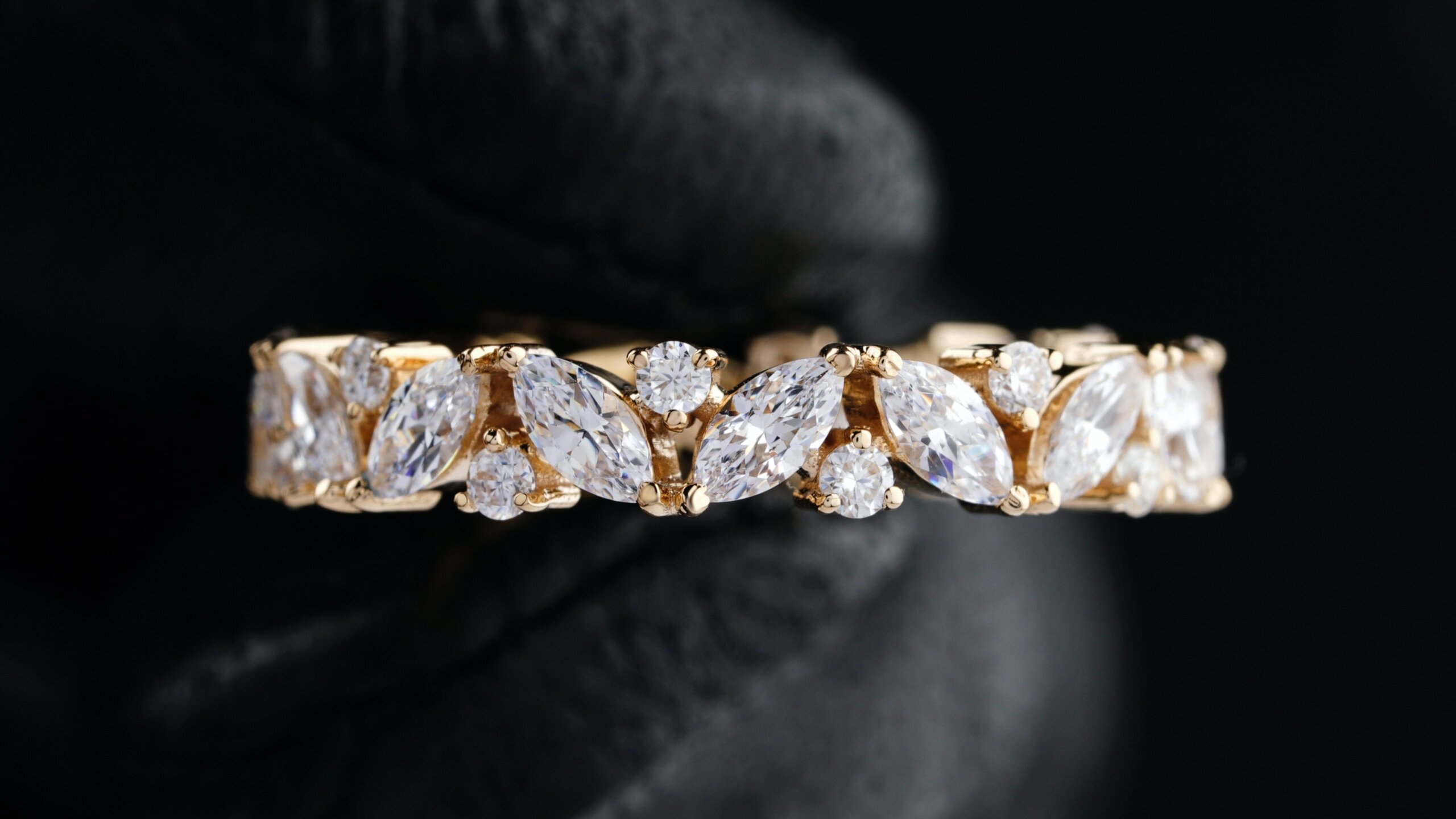
Avoiding Bow Ties in Marquise Diamonds
A bowtie in a diamond is considered less desirable, but is easy enough to avoid once you know what you’re looking for. Most Marquise diamonds will have this feature, but, in many cases, it’s subtle enough that it doesn’t infringe on the appearance of the diamond.
This effect, found in certain fancy cuts like the Marquise, Oval and Pear, is named after its resemblance to a black bowtie. It runs down the center of the diamond and, in extreme cases, can create a very dark ribbon that impacts the beauty and shine of the stone.
This is not something that will be noted specifically within your diamond’s GIA report, which means that choosing a Marquise diamond that is not tainted by an obvious bowtie requires a little more thought. At WillYou, checking for bow ties is part of our extensive QA process for every diamond we sell to our customers, so you don’t need to worry about any nasty surprises.
Marquise Diamond Cost Considerations
A Marquise diamond is a great choice for anyone who wants to get slightly more for their money, as it’s not considered one of the more expensive shapes. Nevertheless, you’ll want to make sure you’re in the right ballpark before you commit…
The Cost of a 1 Carat Marquise Diamond
You can expect prices to start at around $3,500 dollars, and increase from there depending on the quality of the diamond.
As always, the value of any diamond is set based on many factors, including carat weight.
The clarity and color grades, and cut quality (symmetry and polish) of the diamond can influence its value by thousands of dollars, and, in a diamond of this size, it’s very important to scrutinize each aspect.
If you haven’t done so already, you should read up on the importance of eye clean diamonds – and, of course, what they even are – in order to get your head around how to choose a beautiful diamond, and, also, how to get a beautiful diamond for a lot less money than you might think you need right now.
Doing so will give you the scope to invest in a slightly larger carat weight, which is particularly beneficial with a cut as impressive as the Marquise.
Below, you’ll find our guides to ensuring great quality for Cut, Color and Clarity – whatever your chosen carat weight.
Why Marquise Diamonds Are More Affordable
The main reason behind the Marquise diamond’s lower cost is that there is much less demand for diamonds of this shape when compared with the demand for Round Brilliant diamonds.
The main reason most shoppers are looking to buy a diamond is, of course, to create an engagement ring – and, for the overwhelming majority, the tradition of using a Round Brilliant center stone is too significant to pass up.
However, plenty of people prefer the more unusual shapes. From the Heart to the Pear, there is something undeniably compelling about these cuts – not least of all the fact that they create something more unusual, and altogether unique, for your partner to wear.Hand-Selected Marquise Cut Diamonds
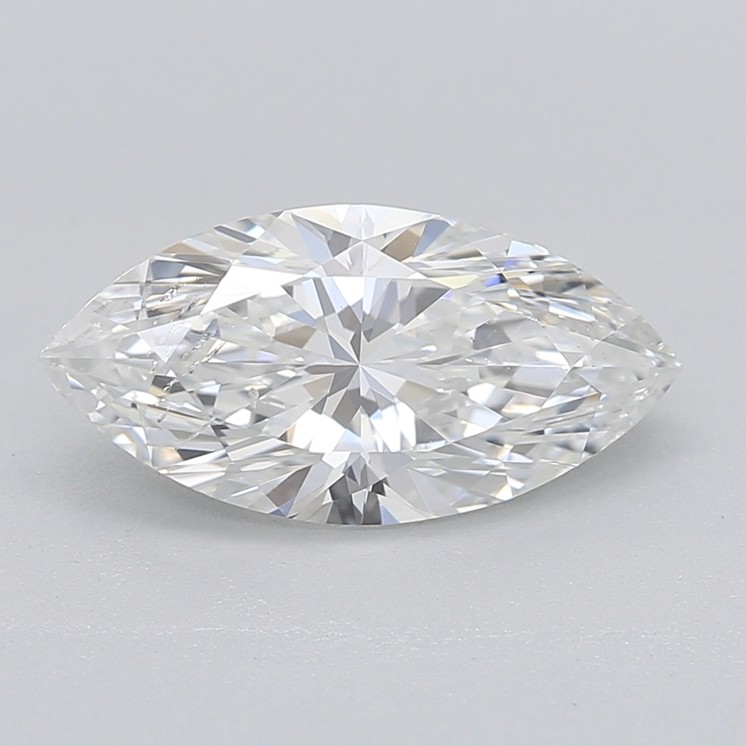
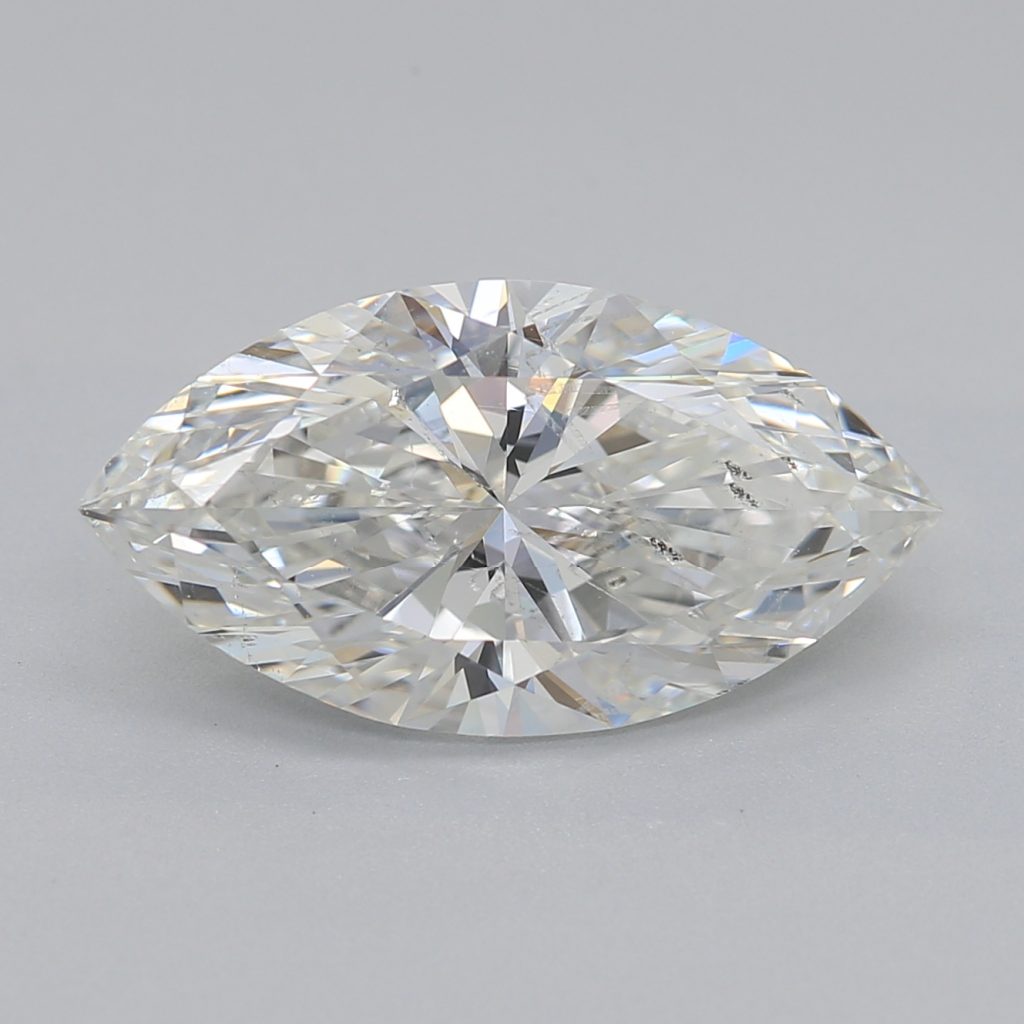
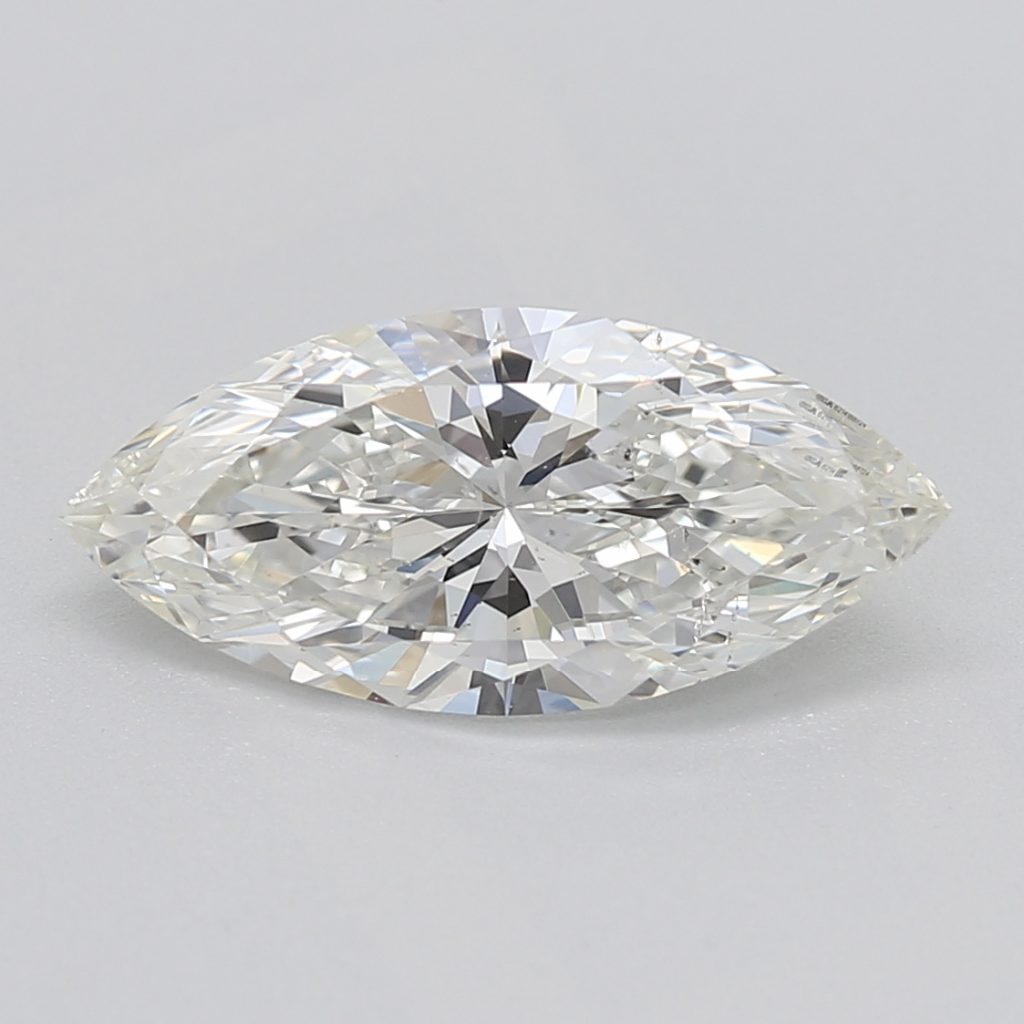
Choosing a Marquise Cut Diamond
Choosing a Marquise cut is more out of personal preference on how narrow you want your diamond to be. Many buyers tend to like the fact that the Marquise cut offers a flattering effect on the finger, making it appear longer and slimmer.
The classic length-width ratio ranges from 1.75 – 2.15, with symmetry being the most important factor. The two endpoints should align perfectly, and the sides should be mirror images of each other. Watch out for chips from the sharp ends of the cut. The corners should have protected prongs to keep them safe.
Color and clarity are subjective when choosing a Marquise. Diamonds in the D – F range are considered the premium cost range. When it comes to clarity, the customer generally has a personal preference for the clarity of the diamond.
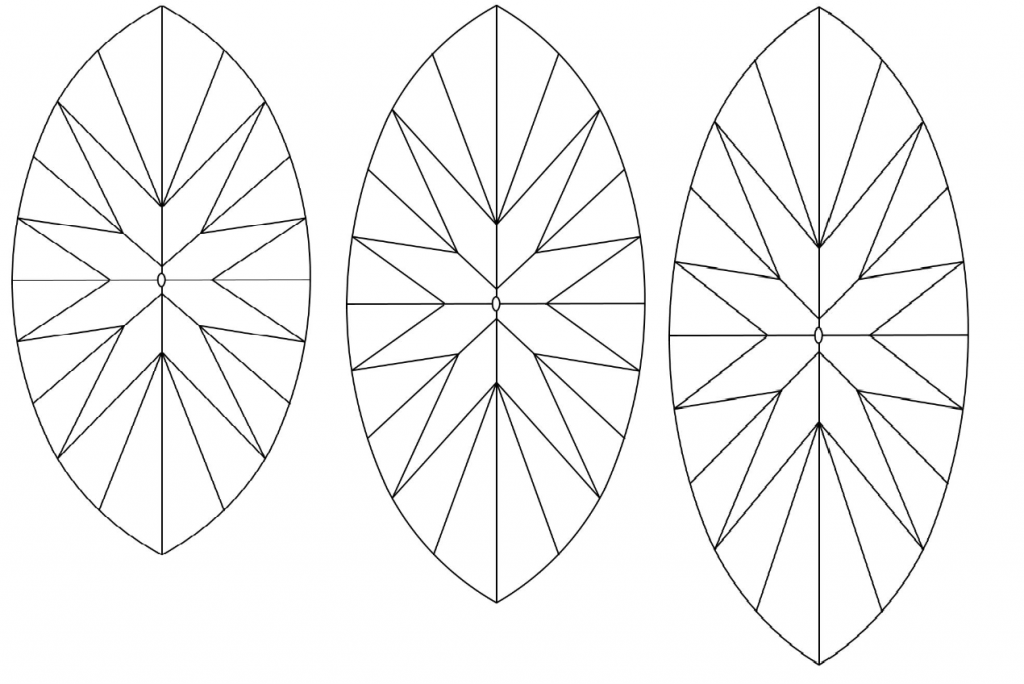
The following cut, color and clarity guides should be taken into consideration when choosing a Marquise cut diamond:
Marquise Cut Diamond Cut Guide
The cut attributes of a diamond contribute to its sparkle, brilliance, and bling. Most knowledgeable buyers would choose attributes from the Excellent – Very Good columns.
| Excellent | Very Good | Good | Fair | Poor | |
| Table % | 53 – 65.9 | 52 – 52.9 or 63 – 65.9 | 51 – 51.9 or 66 – 68.9 | 50 – 50.9 or 69 – 70.9 | <49.9 or >71 |
| Depth % | 58 – 62.9 | 56 – 57.9 or 63 – 65.9 | 53 – 55.9 or 66 – 70.9 | 50 – 52.9 or 71 – 74.9 | <49.9 or >75 |
| Girdle | Very Thin to Slightly Thick | Very Thin or Thick | Very Thin or Very Thick | Extremely Thin or Extremely Thick | |
| Culet | None | Very Small | Small | Medium | >Medium |
Marquise Cut Diamond Length-to-Width Guide
A classic Marquise cut has a length-to-width ratio of 1.90 – 2.00.
| Excellent | Very Good | Good | Fair | Poor | |
| Square | 1.90 – 2.00 | 1.75 – 1.89 or 2.01 – 2.15 | 1.65 – 1.74 or 2.16 – 2.30 | 1.55 – 1.64 or 2.31 – 2.45 | <1.55 or 2.45 |
Marquise Cut Diamond Symmetry, Polish, Cut and Fluorescence Guide
Our experience suggests that Cut, Symmetry, Polish, and Fluorescence contribute to a diamond’s brilliance so most buyers will choose Excellent – Very Good and Fluorescence None – Faint.
| Excellent | Very Good | Good | Fair | Poor | |
| Cut | Excellent | Very Good | Good | Fair – Poor | |
| Polish | Excellent | Very Good | Good | Fair – Poor | |
| Symmetry | Excellent | Very Good | Good | Fair – Poor | |
| Fluorescence | None | Faint | Medium | Strong – Very Strong |
Marquise Cut Diamond Color Guide
Most buyers prefer size over color hue and will buy a diamond of G color
| Excellent | Very Good | Good | Fair | Poor | |
| <0.50 ct. | D – G | H – I | J – K | L – M | > N |
| 0.51 – 1.00 ct. | D – F | G – H | I – J | K | > L |
| 1.00 – 2.00 ct. | D – F | G – H | I – J | K | > j |
| >2.00 ct. | D – F | G – H | I – J | K | > j |
Marquise Cut Diamond Clarity Guide
Most buyers prefer size over clarity cleanse and will buy a diamond of SI1 Clarity.
| Excellent | Very Good | Good | Fair | Poor | |
| <0.50 ct. | FL – VS1 | SI1 – SI2 | I1 – I2 | >I2 | |
| 0.51 – 1.00 ct. | FL – VS2 | VS2 – SI2 | I1 | I2 | >I2 |
| 1.00 – 2.00 ct. | FL – VS2 | VS2 – SI2 | SI2 | I1 | >I1 |
| >2.00 ct. | FL – VS2 | VS2 – SI2 | SI2 | I1 | >I1 |
Marquise Cut Diamonds Pros and Cons
There are advantages and disadvantages to every cut, and the marquise is no different.
Pros
More diamond for your money. The carat weight can be the same as other cuts, but because of its longer shape, it will look bigger.
Another major benefit to the marquise cut is the fact that, due to its slim and elongated shape, it gives the optical illusion of a slender, long finger. Many people gravitate towards this cut for this reason.
It’s also more affordable. The cut tends to be priced lower than other cuts like the round brilliant, but not at the sacrifice of the brilliant cut. This means a beautiful and high quality diamond, with some pretty dramatic savings.
Cons
The bow tie effect. Because of its narrow shape, the marquise cut can produce an area of reduced color in the center of the gem, which resembles a bow tie and, in extreme cases, undermines the beauty of the stone.
Also, the diamond’s vulnerability to breaking it makes it a less desirable choice for people who lead active, busy lifestyles.
Our Expert Take
The Marquise is a great choice for anyone who loves their jewelry to tell a story – and, even if you’re not into retelling 300 years’ worth of history, the Marquise is a dramatic, elegant choice that is bound to suit a wide range of styles.
As always, there are some things to keep in mind. For instance, those characteristic points at either end of the cut are a little more vulnerable than, say, the beveled corners of the Emerald, or the rounded corners of the Cushion – or, of course, the softly curved edge of a Round or Oval. Also, a prominent bow within the diamond could prevent it from looking as bright and brilliant as you envision it to look.
But this isn’t always the case, and you shouldn’t let the fact that the Marquise isn’t the most popular choice for engagement rings put you off. This cut is still super romantic, refined and, of course, sparkly. It’s a great shape for reinventing the classic engagement ring solitaire shape, or for indulging your love of glitter and luxury with rows upon rows of pavé diamonds.
The best thing to do is visit our substantial collection of GIA graded Marquise diamonds and make your own mind up about whether it is truly worth it.
10 FAQs
- Q: What is a Marquise Cut Diamond?
- A: A Marquise cut diamond is an elongated shape with pointed ends, resembling a football or boat. It’s known for its large surface area and unique appearance.
- Q: Are Marquise Diamonds More Expensive?
- A: Generally, Marquise diamonds are less expensive than round cut diamonds of similar size and quality due to less demand and more efficient use of the rough stone in cutting.
- Q: Is the Marquise Cut Diamond Popular?
- A: While not as popular as round or princess cuts, Marquise cut diamonds have a dedicated following for their unique and elegant appearance.
- Q: What Should I Look for When Buying a Marquise Cut Diamond?
- A: Focus on symmetry, length-to-width ratio, absence of a pronounced bow-tie effect, and ensure the setting protects the diamond’s points.
- Q: How Does a Marquise Diamond Affect the Appearance of the Finger?
- A: A Marquise diamond can make the finger appear longer and slimmer due to its elongated shape.
- Q: How Do I Protect the Points of a Marquise Diamond?
- A: Choose a setting with V-shaped prongs at the points to protect them from chipping or snagging.
- Q: What is the Ideal Length-to-Width Ratio for a Marquise Diamond?
- A: The ideal ratio is subjective, but it typically ranges from 1.75 to 2.15. This affects how elongated the diamond appears.
- Q: What is the Bow-Tie Effect in Marquise Diamonds?
- A: The bow-tie effect is a dark area resembling a bow tie that appears across the center of some Marquise diamonds. Its visibility varies from stone to stone.
- Q: Can Marquise Diamonds Hide Flaws Well?
- A: Yes, Marquise diamonds can hide inclusions, especially near the points. It’s important to choose an eye-clean diamond.
- Q: Are Marquise Diamonds Good for Engagement Rings?
- A: Absolutely. Marquise diamonds offer a unique and elegant choice for engagement rings, making them ideal for those seeking a distinctive style.
Embrace the Heart’s Journey with Jeweler AI. Uncover your perfect heart shaped diamond, where tradition meets innovation.
FOLLOW-UP GUIDE SERIES

